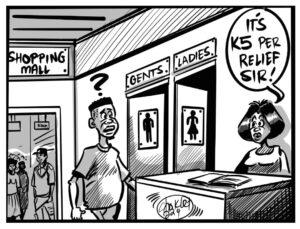The Natural Resource Governance Institute of Accra and London has revealed that among 28 sub-Saharan African countries, Zambia and Botswana are the only ones which are implementing standards laid down in their laws.
And the Institute has noted that commodity booms and bust have fueled public spending in resource-rich African countries, resulting in budget imbalances and high public debt.
In its latest analysis report published on April 15, 2019, the governance institute stated that African countries could generate more income if only they fully implemented their own laws.
“If countries in sub-Saharan Africa closed the ‘implementation gap’ and fully implemented their own laws, they could generate greater income from natural resources. They could also better combat the negative human and environmental impacts of extraction,” the report quoted Africa Co-Director for the Natural Resource Governance Institute Silas Olan’g as saying.
The report further showed that mineral reserves represented a large share of government revenue across the region.
The analysis also revealed that the biggest implementation challenges faced by resource-rich societies in sub-Saharan Africa were fulfilling the legal requirements to transfer revenues collected from oil, gas as well as publicly disclosing information on social and environmental impacts.
It stated that half of the 28 countries studied did not disclose environmental and social impact assessments despite being required to do so by law.
“Trust in government and companies erodes when legal reform is not followed and citizens are left in the dark. Closing the ‘implementation gap’ is in everyone’s interests because ultimately it enables countries to reap the benefits that their mineral wealth should offer,” said Olan’g.
The analysis revealed that Sub-Saharan Africa lagged behind other parts of the world in governing state owned mining and oil companies and natural resource funds, which managed billions of dollars of resource revenues.
It stated that most governments did not respect rules for managing assets held in natural resource funds and for disclosing conflicts of interest, particularly where corruption was poorly controlled.
“Building capacity and allowing space for independent oversight is critical for holding government institutions accountable in resource-rich countries. Official audit bodies and non-state actors like the media play an important role here. It is unsurprising but sobering to find that the more recent the reform, the larger the gap in implementation. It serves to illustrate that legal reforms can make headlines but it is the implementation that will ultimately deliver benefits to citizens,” said Olan’g.
“If managed well, natural resources offer the potential for driving economic development. Governments in sub-Saharan Africa are well placed to build on the strong laws they have developed, but this review of the index shows how they now need to turn greater attention to implementation.”












